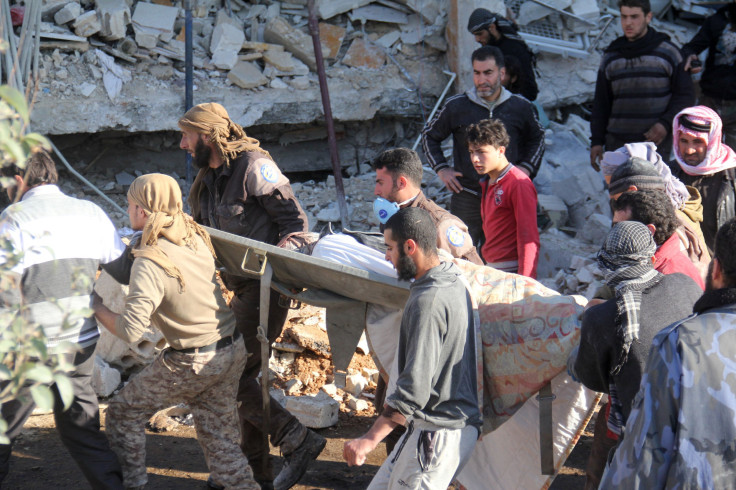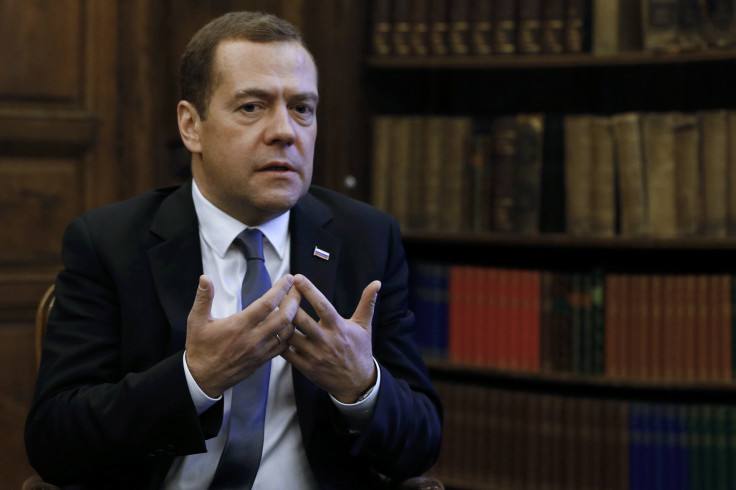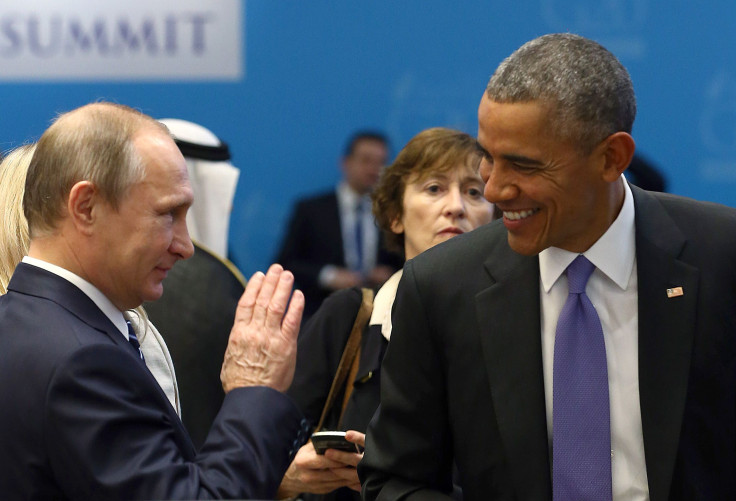Russian Bombing In Syria Highlights Gulf With West, Stymies Ceasefire Prospects
MOSCOW — Western leaders were quick to criticize reported Russian missile strikes on schools and hospitals in northern Syria, with French officials labeling the Monday attacks a “war crime.” Moscow’s initial reaction, in comparison, was silence.
On Tuesday Russian state-controlled television channels, by which most Russians get their news, almost entirely avoided mention of the airstrikes, in which the United Nations said 50 people, including medical personnel and patients, lost their lives.

Doctors Without Borders said its hospital in Syria's northwestern Idlib province was hit by four missiles within minutes, leading observers to suggest that the attack was deliberate.
"Either the [Syrian] government or Russia" was responsible, Mego Terzian, president of the organization's French segment, told Reuters.
The incident is the latest indication of the dissonance between the aims of Western countries and Russia in Syria as fighting intensifies ahead of a temporary ceasefire scheduled to come into force this week.
But doubts over the viability of any truce are growing as participants vow not to lay down their arms.

Russian Foreign Minister Sergei Lavrov said straight after the announcement of the ceasefire Friday, alongside his U.S. counterpart, John Kerry, that the Kremlin’s bombing campaign in Syria, launched in September, would not be halted even if fighting between rebels and Syrian government forces came to an end.
Moscow has actually stepped up its bombing campaign, with the reported attacks on the medical facilities just one example of its widened scope. The Russian Defense Ministry said Thursday that bombers had targeted 1,888 “terrorist objects” in Syria in the past seven days of sorties.
Russian Prime Minister Dmitry Medvedev warned at a security conference in Munich over the weekend that the West and Russia had “slid, in essence, into times of a new Cold War.” The disagreements were even apparent on Twitter when Steve Warren, a spokesman for the U.S.-led coalition fighting the Islamic State group, contradicted a claim by Russia’s Defense Ministry that U.S. planes were involved in bombing the key northern city of Aleppo.
.@MOD_Russia's tweets are wrong. Furthermore their bombing is reckless and indiscriminate and their efforts are strategically short-sighted.
— COL Steve Warren (@OIRSpox) February 11, 2016
After a long Russian silence on the issue, President Vladimir Putin’s spokesman, Dmitry Peskov, rejected Tuesday the claim that Russia was involved in the targeting of hospitals or involved in war crimes, the Interfax news agency reported. Peskov said reporters should look to statements from the Syrian authorities to understand what happened. The Syrian ambassador in Moscow, Riad Haddad, said Monday that hospitals were attacked by U.S. warplanes.
Moscow insists there is no evidence strikes have caused any civilian casualties and has consistently maintained its bombing campaign is directed exclusively at terrorists inside Syria.
But attacks have steadily bolstered the forces of President Bashar Assad, which have made rapid gains since the start of this year and now appear on the cusp of encircling Aleppo. Western leaders maintain Russian strikes were not aimed at destroying the group commonly known as ISIS but targeted moderate rebel groups instead.
The day before the incident at the hospital, President Vladimir Putin and U.S. President Barack Obama spoke over the phone in an apparent effort to increase coordination between the two countries in the Middle East.

However, this effort was not widely covered by Russian state-owned media. Following Thursday's ceasefire announcement by Kerry and Lavrov, there was little expectation among commentators that violence would stop: Two days after he revealed details of the temporary suspension of hostilities, Lavrov told reporters there was only a 49 percent chance of it succeeding.
Assad also indicated that the sides in the Syrian conflict were unlikely to stop shooting. "Regarding a ceasefire, a halt to operations, if it happened, it doesn't mean that each party will stop using weapons," Assad said in Damascus in televised comments Monday, Reuters reported.
In an observation widely reported by Kremlin-friendly media, former U.S. ambassador to Moscow Michael McFaul tweeted last week that the increasing tempo of the military intervention was giving Russia the upper hand.
Putin is winning in Syria.
— Michael McFaul (@McFaul) February 12, 2016
A survey published by the independent Levada Center pollster Monday claimed that almost two thirds of Russians support the bombing campaign in Syria, with more than half holding the opinion that the Kremlin’s chief aim is to contain terrorism. At the same time, the survey showed a declining interest in Syria, with only 18 percent of respondents saying they follow these events closely — down from a quarter two months ago.
News reports on Russian state-owned television Tuesday contained information about the Russian bombing effort and said jets were hitting infrastructure targets. But the main focus of the coverage from Syria was the bombardment of Kurdish militia groups by Turkish artillery positions across the Syrian border.
The Syrian Kurdish militias, the People’s Protection Units, have advanced in recent days closer to the Turkey-Syria border amid the increasingly fluid situation generated by the advance of Assad’s troops and Russian airstrikes.
© Copyright IBTimes 2024. All rights reserved.






















